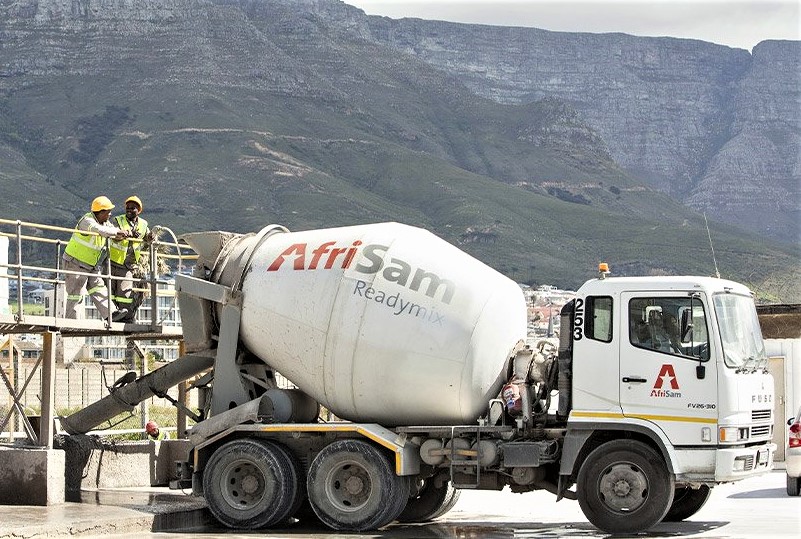
As part of its continuous drive to improve on its
solutions offerings, diversified construction materials company AfriSam is
developing multiple new solutions to provide more environment-friendly and
cost-effective products for clients.
Cost effectiveness is particularly important,
considering that the South African construction industry remains under pressure
and is in a state of accelerated decline.
Consumers can expect at least two new offerings by
the end of this year.
The first of the new solutions, forming part of
AfriSam’s construction materials segment, will result in the company developing
a manufactured sand, AfriSam readymix GM Amit Dawneerangen says.
“This is on the back of natural sands – such as
plaster and river sands – becoming a very scarce resource while losing its
consistency and quality over time.”
This declining resource is of particular concern
for the production of concrete, which uses natural materials.
With the sand being processed in a certain way,
AfriSam intends to manufacture the solution so that its performance is the same
as that of natural sand, thereby enabling the company to use fewer natural
materials while reusing waste materials.
Currently, natural sand accounts for 20% to 30% of
the sand component of a concrete mix and AfriSam’s intention is to replace this
completely with the new sand once the solution is in operation. By replacing the
natural sands in a mix, Dawneerangen explains that the mix itself has a lower
carbon footprint and will result in improved durability.
Another offering in the pipeline is the
improvements on AfriSam’s readymix eco-range to increase the amount of supplementary
cementitious materials (SCMs) that the company uses.
Despite the perception that environment-friendly
products are cheaper, Dawneerangen says this is not the case, and suggests that
one should rather think about the benefits of such products in terms of
durability, sustainability and the environment.
In spite of this perception, AfriSam has continued
to ensure the consistency and quality of its products through sustainable and
environment-friendly operations, which entails the recycling and reusing of all
water on site, he says.
For example, the recycling pits at the company’s
readymix plants use filter-like technology to separate solid materials from
water once a truck has returned to site and discharged its leftover load into a
settling pit. Where possible, materials, mainly comprising sand and stone, from
the settling pit are then reused in the concrete mixing process. In other
instances, the waste material is recycled at AfriSam’s aggregate operations.
Environmental Incentives
The Carbon Tax, which came into effect in June, has
had a direct impact on the price of construction materials.
Dawneerangen says the tax has particularly
influenced AfriSam’s readymix division in terms of the cost of cement,
considering that companies are charged a higher cost for cement manufacturing,
which is highly carbon dioxide intensive. In turn, this influences the
production costs for one cubic metre of concrete.
The different brands in AfriSam’s cement product
range contain varying amounts of clinker, which is the most energy-consuming
element of cement. This means that the carbon footprints of the brands differ
from each other.
However, AfriSam, which has estimated the impact of
the Carbon Tax on the prices of the range of cement and readymix concrete
products to range between a 1% and 3% hike, has informed clients of the price
increases.
In taking a transparent and responsible approach to
the new tax, AfriSam is showing clients, via their quotations and invoices, the
amount of carbon tax payable on each specific bag of cement and in the case of
readymix for every cubic metre of concrete.
This means that customers can still see the base
price of what the company is charging for the product.
The idea is to incentivise clients to make more
environmentally responsibly choices, Dawneerangen says, adding that AfriSam’s
“drive is to use as little cement as possible in its mixes while maintaining
quality, durability and compliance”.
He explains that a concrete product with more
Portland cement will be more expensive to buy, compared with an
environment-friendly concrete product.
AfriSam’s ecofriendly range uses SCMs comprising
waste products, such as slagment and fly ash, with cementitious properties.
Therefore, a portion of the Portland cement component can be replaced with a
portion of the SCMs without sacrificing the quality of the product, he adds.
According to Dawneerangen, test results have shown
that concrete durability is enhanced when using these SCMs.
Further, AfriSam’s pollution abatement technology
includes adequate silo filter technology, as well as sprinkler suppression
systems to help control dust.
The silo filters ensure that there are no overflows
when cement is pumped into silos, which could result in dust settling over the
surrounding environment, while the sprinkler suppression system allows for
concrete producers – such as AfriSam – to suppress dust when tippers are
offloaded on site.
“That’s really what our main issue at a readymix
site is, and we focus on that by having the adequate filtration and dust
suppression systems in place,” Dawneerangen comments.
Meanwhile, as testament to AfriSam’s technical
capabilities, reliability and the scale to which products are produced, the
company supplied construction materials to 15 of the projects of the 31
finalists of the 2019 iteration of the Fulton Awards.
The awards recognise and honour excellence and
innovation in the design and use of concrete.
“That’s what sets us apart from our competitors – creating customised solutions to meet the very difficult requirements for these types of projects,” Dawneerangen concludes. http://www.engineeringnews.co.za/article/company-develops-multiple-environment-friendly-cost-effective-solutions-2019-10-11
More news
- PART 2: HEALTH, SAFETY AND PROFITS IN CONSTRUCTION
- PART 1: HEALTH, SAFETY AND PROFITS IN CONSTRUCTION
- ROMPCO SHOWCASES ITS CONTRIBUTION TO REGIONAL INTEGRATION MMEC 2024
- LICHTENBURG SOLAR PROJECT FOSTERS GROWTH AND HOPE IN EMBATTLED COMMUNITY
- PART 1: WORLD EARTH DAY: CIRCULAR ECONOMY APPROACH AND THE WORLD’S PLASTIC PROBLEM

